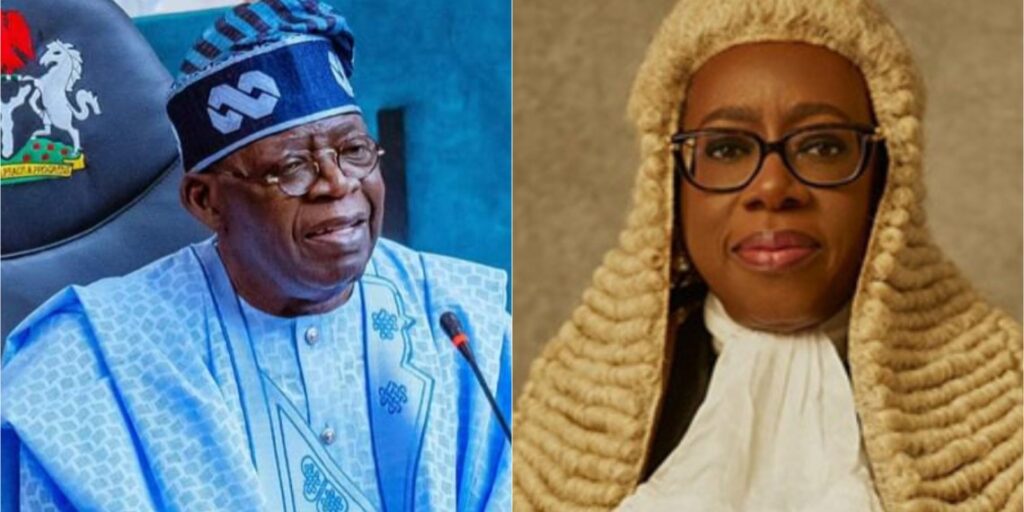Olayomi Koiki

A Nigerian jurist, Justice Kudirat Kekere-Ekun, who was denied entry to the United States following a 2020 controversial judgement that declared Hope Uzodimma as governor of Imo State, under the platform of the All Progressives Congress (APC), has been appointed the Chief Justice of Nigeria.
Ms Kekere-Ekun, 66, who took over the reins of the Nigerian judiciary in an acting capacity from Justice Kayode Ariwoola, who clocked the mandatory retirement age of 70 on Thursday, was recommended by the National Judicial Council (NJC) – as the judiciary chief in a meeting last week, asserting the seat was too crucial to be left vacant.
The U.S. government rejected the visa application of Ms Kekere-Ekun, who was among a panel of justices that sacked PDP’s Emeka Ihedioha from the Imo governorship seat and pronounced APC’s Hope Uzodimma winner of the hotly-contested polls, according to Daily Independent.
The former governor of Cross-River State, Donald Duke also alluded to the incident in his memoir.
“Apart from the recent cases, there is another one where number four became number one, the justices that gave that judgment cannot go to the United States today because they have been denied visas,” Mr Duke said at a memoir launch in February 2023.
The former governor stressed that the jurists who intended to visit the U.S. to attend a legal conference were barred while their accompanying aides were issued visas.
“They want to go on a retreat. Their aides were given visas but they were not given. How much disgrace can we take as a nation before we say enough is enough?” Mr Duke had said.
Mrs Kekere-Ekun will be sent to the Nigerian Senate for confirmation, where President Bola Tinubu expected her to scale through easily.
The decision of Mrs Kekere-Ekun’s Supreme Court that gave Imo governorship to Mr Uzodimma was widely deemed among the most controversial in apex court’s history.
A recently retired Supreme Court justice, Dattijo Muhammad, roundly criticised the court as filled with judicial bandits and bribe-takers.
Earlier in March, the United Nations Office on Drugs and Crimes (UNODC) said corruption is prevalent in the Nigerian judiciary.
A representative of the UNODC, Melissa Omene, made this assertion at a judicial accountability event in Abuja.
Speaking on a 2019 survey that was conducted by the UNODC and the National Bureau of Statistics (NBS), Ms Omene said the survey “found that 20 per cent of those who had contact with the Nigerian judiciary were confronted with a request for the payment of a bribe.
“Indeed, corruption in the Nigerian judiciary is extensive and both male and female judges are party to it.”
Giving a comparative analysis of the issue, a UNODC study on gender and corruption in 2020, disclosed that “male judges are far more likely to be involved in bribe-seeking conduct than their female colleagues.”
The study said corruption amongst judicial officers had eroded “public confidence in the judiciary.”
Weighing in on the quality of justice dispensation by Nigerian courts, a lawyer, Jibrin Okutepa had blamed lawyers and judges for the loss of public confidence in the judicial system.
Mr Okutepa, a Senior Advocate of Nigeria (SAN) and a former member of the Legal Practitioners Disciplinary Committee (LPDC), said the country is in a moral decay.
